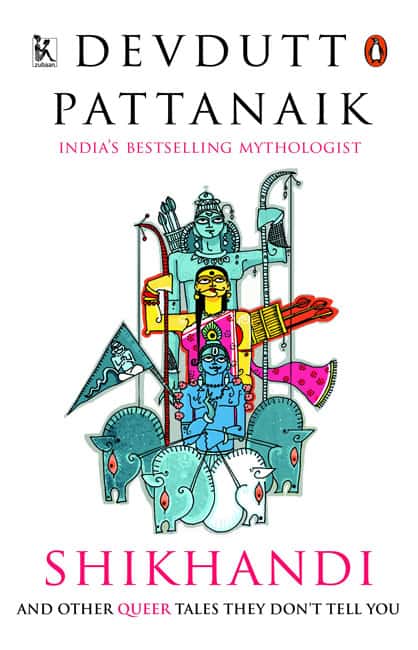SUBJECT: 4/5
RESEARCH: 3.5/5
RELEVANCE: 3.5/5
WRITING STYLE: 4/5
ENTERTAINMENT QUOTIENT: 4/5
“Patriarchy asserts men are superior to women Feminism clarifies women and men are equal Queerness questions what constitutes male and female”
It is with these strong and effective words that the blurb to Shikhandi And Other Tales They Don’t Tell You starts and in my humble opinion, it very aptly catches the essence of the book.
In a world where homosexuality is constantly gaining acceptance and legality in major nations of the world, the book highlights that the same is not a recent phenomenon.
Hinduism is a very shy religion and people practising Hinduism are shyer still. We don’t like to discuss the “S” word at all, and least of all anything to do with “homosexuality”.
But how many of us know that homosexuality is not a modern or even a western concept. Our ancient texts and even oral traditions (which are passed from over thousands of years from one generation to generation by the word of mouth) are filled with references to Queerness.
The famous mythologist Devdutt Patnaik brings to the forefront the long-concealed or long forgotten mentions of Queerness in this great religion of ours.
Shikhandi And Other Tales They Don’t Tell You consists of thirty-odd chapters with each one of them dealing with a character or incident of Queerness finding mention either in any one of our ancient texts or surviving the wrath of time by making its way through the still prevailing ancient oral traditions; all of them pertaining to Hinduism.
The book, unlike what many may assume it to be, is not the least bit scandalizing or belittling our religion.
It rather seeks to highlight and celebrate something which our ancient folks had accepted and even celebrated in its most natural form.
Thus queerness, as the author likes to call it, is the least bit unnatural and by accepting it today we are not blindly aping the west or trying to forgo our culture.
Instead, by acknowledging it, we are simply catching up on a lost part of our glorious ancient culture.
The most important character which also imparts the title to the book and catches the fancy of the author in the very first chapter of the book is none other than “Shikhandi”, the woman who became a man to satisfy her wife.
Other chapters are devoted to Lord Mahadeva, Lord Vishnu, the goddess Kali, Lord Krishna, Lord Rama, Bhima, Narada, Indra, Arjuna, Urvashi and the lesser known Rishyashringa, Pramila, Alli, Samba, Aruna, Ila, Vijaya, Skanda, Chudala and many others.
Just like all other works of Devdutt, this one too is full of beautiful and creative illustrations done by none other than the author himself.
The illustrations, if not the best are next best part I liked about the book, second only to the stories which the author have so marvellously put together to form this book.
They are a pleasure to read and the brevity and conciseness of each story would remind of the days when your grandmother will tell you stories till you slept.
Thus, needless to say, I loved Shikhandi And Other Tales They Don’t Tell You in totality and would recommend it to all my readers.
